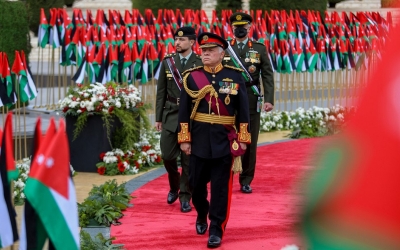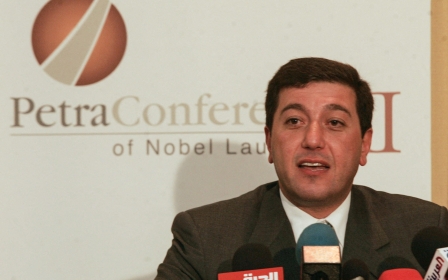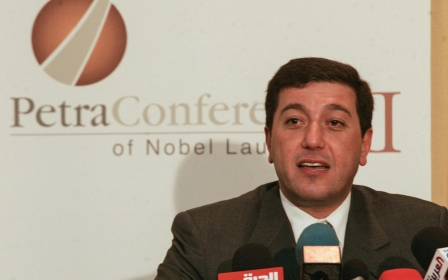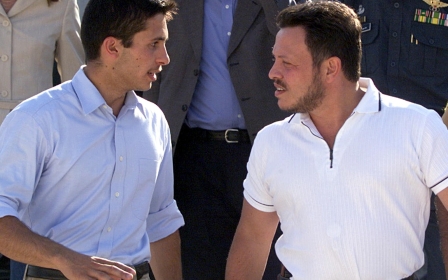Jordan: Suspects in destabilisation plot to stand trial in security court
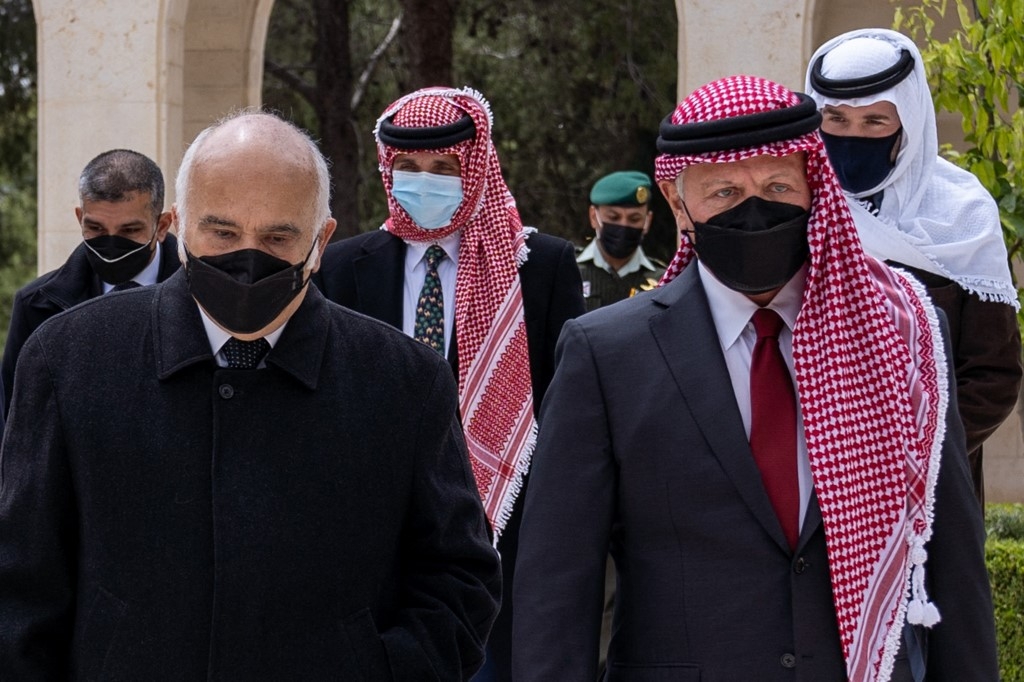
Suspects in an alleged destabilisation plot against Jordan's ruling monarchy will face trial in the kingdom's State Security Court, state media reported on Wednesday.
State media said the "court's prosecutor" would begin its investigation into "individuals implicated in the sedition".
Jordanian authorities arrested 20 suspects in connection to what has been described by Deputy Prime Minister Ayman Safadi as a "wicked plan" to undermine the throne.
Middle East Eye revealed on Tuesday that former royal court chief Bassem Awadallah had been arrested in connection to the plot after intelligence services intercepted voice and text messages between him and Saudi Crown Prince Mohammed bin Salman, in which they discussed how to destabilise King Abdullah's rule.
According to the Washington Post, Saudi Foreign Minister Faisal bin Farhan flew to Amman last week to secure the release of Awadallah, who holds Saudi citizenship and serves as an adviser to bin Salman.
Other individuals expected to stand trial include former special envoy to Saudi Arabia Sharif Hassan bin Zaid.
Prince Hamzah, Jordan's former crown prince and King Abdullah's half brother, was also suspected of being involved in the plans to destabilise the kingdom. The prince, however, will not stand trial.
Loyalty to the country
Last Wednesday, Abdullah said Jordan's "worst political crisis" had ended after Hamzah signed a pledge stating his loyalty to the country.
"Prince Hamzah's case has been resolved within the royal family," Prime Minister Bisher al-Khasawneh was quoted as telling a closed session of parliament on Monday.
Abdullah and Hamzah appeared together in public on Sunday to mark the country's 100th year of independence.
'Prince Hamzah's case has been resolved within the royal family'
- Jordan's Prime Minister Bisher al-Khasawneh
Hamzah has denied he was part of a foreign plot. Speaking in English in a video passed by his lawyer to the BBC, Hamzah said he was not part of any foreign conspiracy and denounced the ruling system as corrupt.
“[Jordanians’] wellbeing has been put second by a ruling system that has decided that its personal interests, financial interests, that its corruption is more important than the lives and dignity and future of the 10 million people who live here,” he said.
Authorities in Amman have promised Jordanians a transparent investigation, and official media continues to talk up the seriousness of the alleged sedition.
Established in 2013, the State Security Court has military and civilian judges and jurisdiction over high treason, espionage, drug trafficking, counterfeiting money and terrorism cases.
Middle East Eye delivers independent and unrivalled coverage and analysis of the Middle East, North Africa and beyond. To learn more about republishing this content and the associated fees, please fill out this form. More about MEE can be found here.


